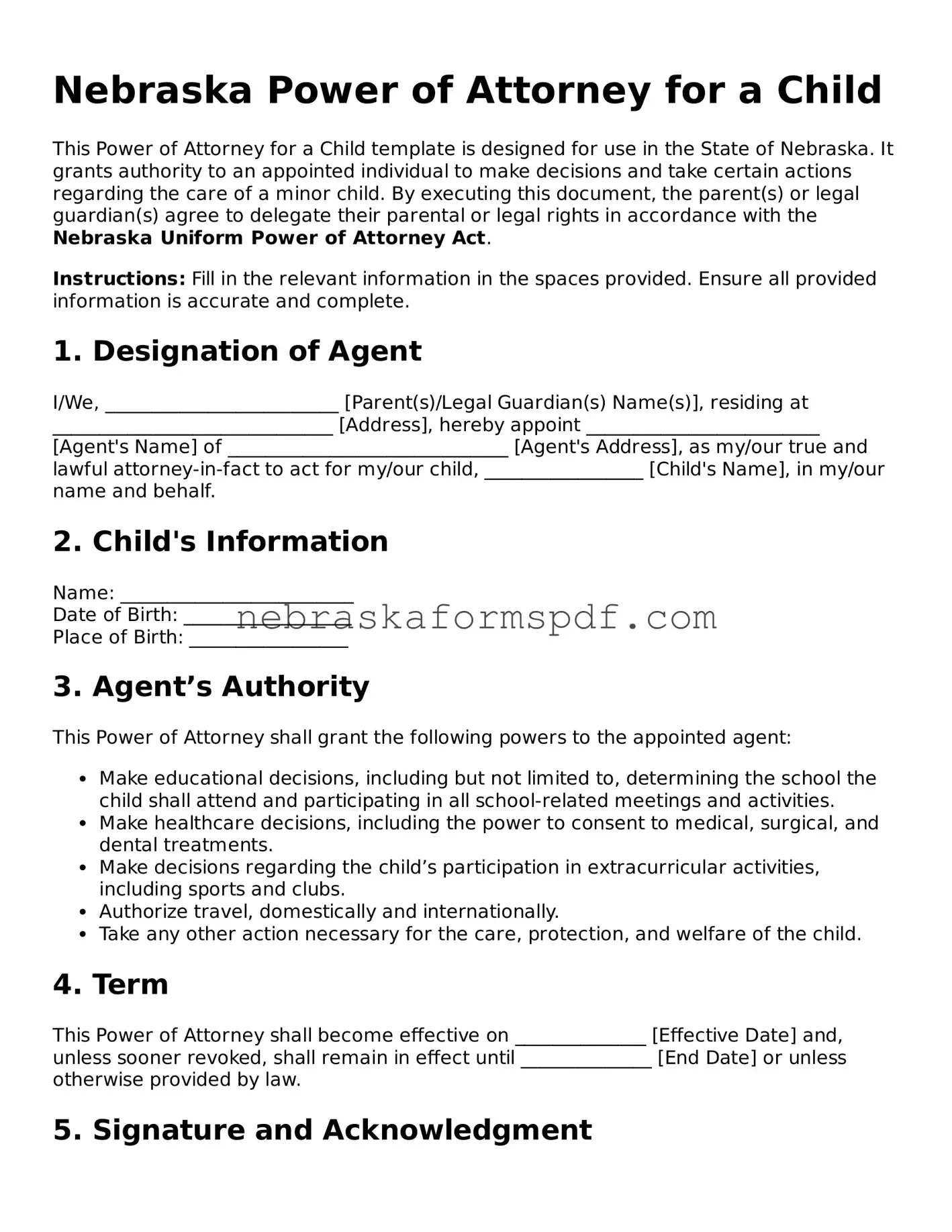Fillable Nebraska Power of Attorney for a Child Template
The Nebraska Power of Attorney for a Child form is a legal document that allows a parent or guardian to grant another individual the authority to make decisions regarding their child's welfare, including education, health care, and everyday needs. This tool proves to be invaluable in scenarios where a parent may not be present due to various reasons such as travel, illness, or military obligations. Emphasizing the importance of this form ensures that a child's care remains uninterrupted and in trusted hands.
Open Editor Here

Fillable Nebraska Power of Attorney for a Child Template
Open Editor Here

Open Editor Here
or
Click for PDF Form
Don’t exit with an incomplete form
Finish Power of Attorney for a Child online using a quick, guided process.